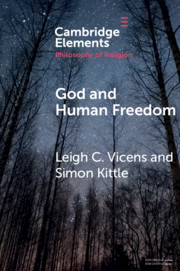Element contents
God and Human Freedom
Published online by Cambridge University Press: 03 July 2019
Summary
- Type
- Element
- Information
- Online ISBN: 9781108558396Publisher: Cambridge University PressPrint publication: 04 July 2019
Bibliography
- 11
- Cited by



